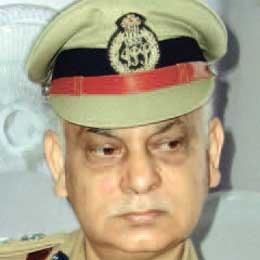Guwahati, Sept 17: Former Assam Director General of Police Shankar Barua, quizzed recently by CBI in connection with Saradha scam, allegedly shot himself dead at his residence today.
 Guwahati Senior Superintendent of Police A P Tiwari told PTI that Barua was rushed to a local nursing home at around 12 noon and was declared dead there.''Barua is no more. We are investigating. We cannot say anything now. Only after the investigation we can talk about details,'' Tiwari said.
Guwahati Senior Superintendent of Police A P Tiwari told PTI that Barua was rushed to a local nursing home at around 12 noon and was declared dead there.''Barua is no more. We are investigating. We cannot say anything now. Only after the investigation we can talk about details,'' Tiwari said.
Barua's body has been sent for post-marten. He was admitted to another hospital last week after he complained of heart problems and was released from there this morning.
''He came home and within half an hour he went to the terrace and shot himself with a pistol. He was immediately rushed to a nearby hospital by family members,'' a close family member said.
Barua's name got linked with the scam after an employee of Saradha's media house here alleged last year that he had provided 'protection' to them in Assam which was arranged by popular Assamese singer and filmmaker Sadananda Gogoi on behalf of the group.
Gogoi was taken to Kolkata by CBI for further questioning and was subsequently arrested on September 12.
CBI had conducted raids on 12 premises on August 28 in connection with the multi crore rupees ponzi scheme scam. The raids were carried out at the residences of two former Assam ministers, including that of former health minister Himanta Biswa Sarma, Barua and Gogoi, among others.





Comments
Add new comment